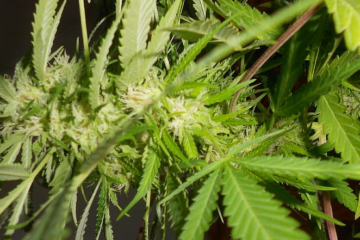The South Dakota House of Representatives has passed a bill that would outlaw the sale and manufacture of hemp-derived products that contain psychoactive cannabinoids. The bill targets products that are chemically altered or converted from industrial hemp, such as delta-8 THC, delta-10 THC, THC-O, HHC, and THCP.
What are these cannabinoids and why are they banned?
Cannabinoids are chemical compounds that interact with the endocannabinoid system in the human body, which regulates various physiological and cognitive functions. The most well-known cannabinoid is delta-9 THC, the main psychoactive ingredient in cannabis that causes the “high” sensation.
However, there are many other cannabinoids that have different effects and properties. Some of them are naturally occurring in hemp plants, which are legally defined as cannabis plants that contain less than 0.3% delta-9 THC. Others are synthetically derived or modified from hemp extracts, using chemical processes that alter the molecular structure of the cannabinoids.
These products are often marketed as “diet weed” or “legal highs”, as they can produce similar or stronger effects than delta-9 THC, but are not regulated by the federal government or most states. Some consumers use them for medical or recreational purposes, while others may be unaware of their potency and risks.

The bill’s sponsor, Rep. Brian Mulder, said that these products have no medical value and are only used for psychoactive effects. He also claimed that some manufacturers use unsafe household chemicals to make them, and that they have caused overdose deaths in other states.
How would the bill affect the hemp industry and consumers?
The bill, House Bill 1125, would classify the production or sale of these products as a class 1 misdemeanor, punishable by up to a year in jail, a $2,000 fine, or both. The bill would not affect products that are made with naturally occurring cannabinoids, such as CBD, CBG, or CBN, as long as they are not chemically manipulated or converted.
The bill has received support from the South Dakota Department of Health, which said that testing to differentiate synthetic and natural cannabinoids is feasible. The department’s secretary, Melissa Magstadt, testified that these products have zero medical use and are 100% used for psychoactive effects.
However, some hemp industry representatives and consumers have opposed the bill, arguing that it would restrict the access and choice of products that have therapeutic benefits for some people. They also pointed out that the bill may not be in line with the federal law, which only bans certain altered substances, not all the ones named in the bill.
Caleb Rose, a cannabis shop owner, testified that he is on board with banning unsafe and unregulated products, but not the ones that are naturally produced and help people. He asked the lawmakers to identify the compounds that the federal government is actually speaking about, and avoid the ones that are not.
What are the next steps for the bill?
The bill passed the House Health and Human Services Committee on Jan. 30, with a 11-2 vote, and the full House on Jan. 31, with a 69-0 vote. It now moves to the Senate for consideration.
If the bill becomes law, South Dakota would join a growing number of states that have banned or restricted hemp-derived products that contain psychoactive cannabinoids. According to the U.S. Hemp Roundtable, a hemp industry advocacy group, at least 18 states have enacted or proposed legislation to regulate these products, as of January 2024.



